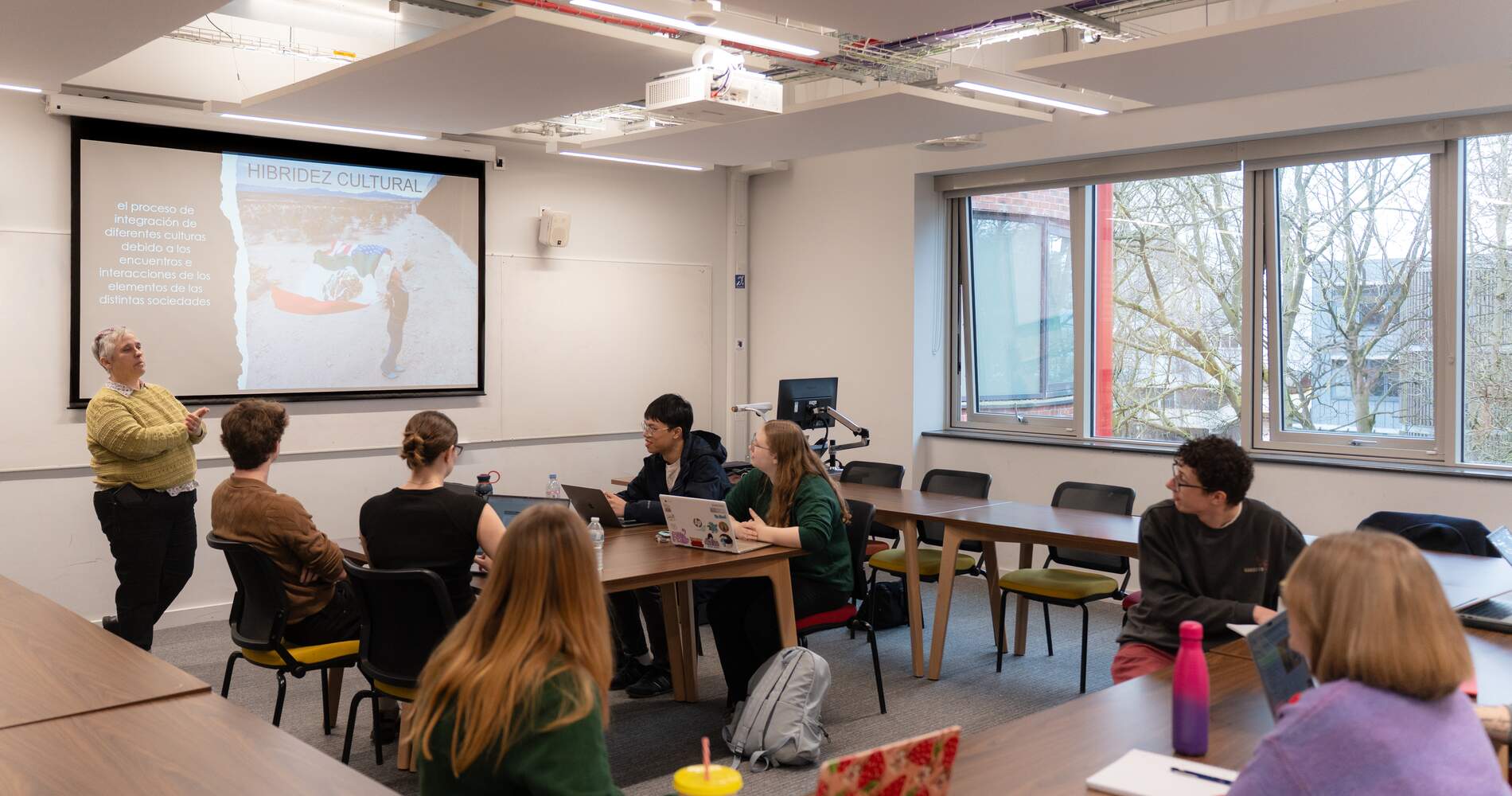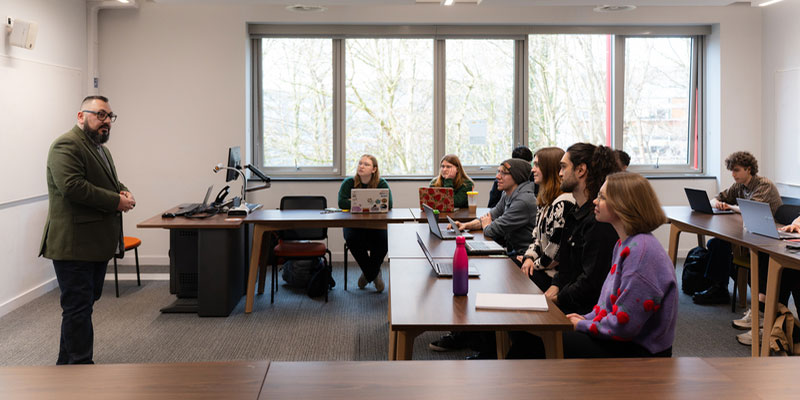Immerse yourself in the study of linguistics, modern languages or English language, or combine these with another subject.
Why study languages and linguistics at York?
If you're studying linguistics, you'll discover the hidden patterns and structures in language through dedicated and supportive teaching. If you're studying a language, we'll guide you to become a confident user with a deep understanding of the culture behind it.
Our modern language courses are primarily taught in the target language, which allows you to easily enhance your comprehension skills. We foster a supportive learning environment to equip you with the skills needed to become a proficient speaker ready for a multicultural career. You can study a new language or continue your studies in an existing one.
Our linguistics courses equip you with knowledge of the 'building blocks' of language, including grammar and sound systems. You'll learn how language is used and processed, how it varies and changes, and how we can apply our knowledge about language to other domains. You can shape your degree towards a more science-based or humanities-based approach, or integrate the two.





